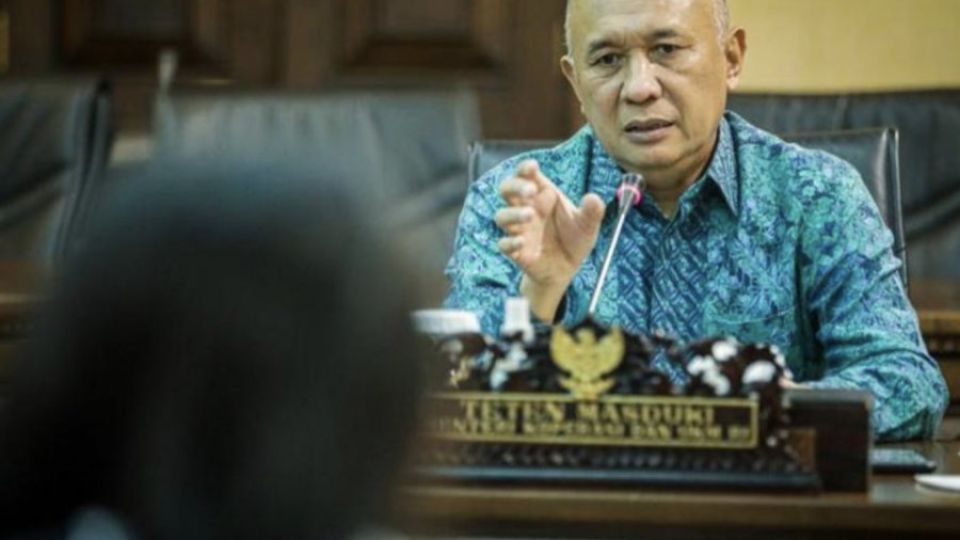September 12, 2023
JAKARTA – Cooperatives and Small and Medium Enterprises (SMEs) Minister Teten Masduki has questioned the plan of TikTok to expand into e-commerce and other sectors, saying the popular social media platform could become a “monopoly” and potentially threaten Indonesia’s small businesses.
Speaking at a meeting on Sept. 4 with House of Representatives Commission VI overseeing trade and investment, the minister said the video hosting service was currently applying for a license to operate a digital payment system.
After that, TikTok could also venture into “financing and logistics”, he said.
“I don’t know why the Business Competition Supervisory Commission (KPPU) has not spoken about this,” said Teten.
The cooperatives and SMEs minister underlined that a company should not be allowed to combine e-commerce and social media, pointing to the possibility of social media platforms influencing online transactions.
Teten also said that an e-commerce company should be prohibited from selling its own products in the online marketplace it operates.
“We should regulate that,” he said, without indicating what types of rules should be put in place.
TikTok has been gaining prominence among users in Southeast Asia, facilitating digital transactions worth US$4.4 billion across the region last year.
The figure is an increase from the $600 million it booked in total transaction value in 2021, but it still lags behind Shopee’s merchandise sales totaling $48 billion in the region in 2022, according to Singaporean tech venture and market research outfit Momentum Works.
Read also: TikTok in talks to gain Indonesian payments license
Bima Laga, chairman of the Indonesia E-Commerce Association (idEA), said only the KPPU was authorized to determine whether a firm was running a monopoly or not, and that the commission had certain parameters to measure this.
He also pointed out that some e-commerce firms had expanded their businesses to offer in-house payment and delivery services, implying that TikTok was not a special case.
“They do it to ease the transaction process from maybe three steps to two steps or one. Is that a monopoly? I cannot say so before there is a [KPPU report] on market dominance and whether there are [other] similar services in the market,” Bima told a press briefing on Friday.
Bima also said that all services under the banner of a single e-commerce platform had to obey the government regulations that related to each business sector. For instance, if an e-commerce firm developed a logistics service, it must set up a separate business entity to obtain a logistics license, provided that the existing regulations allowed this.
Regulating digital economy
TikTok gained the government’s attention in June, when the British business daily Financial Times reported that the platform’s e-commerce arm TikTok Shop had released a feature offering popular items in the United Kingdom.
However, all advertised items were shipped from China and sold by a Singaporean company owned by Chinese technology giant ByteDance, which also owns TikTok.
Read also: High-flying TikTok Shop rattles e-commerce
The Cooperatives and SMEs Ministry met with representatives from TikTok Indonesia in July. The company reportedly stated that it had no intention of rolling out a similar service in Indonesia, but Teten seemed unconvinced.
At Friday’s meeting with House Commission VI, the minister reiterated an urgency to revise Trade Ministry Regulation No. 50/2020 on e-commerce transactions to prevent an influx of cheap foreign products.
According to Teten, revising the regulation had entered a “harmonization process” at the Law and Human Rights Ministry.
“We should not be late to [regulate the digital economy],” he said.
“If [we are], our SMEs will disappear, local e-commerce [firms] will disappear, and the consumers will bear the losses.”


